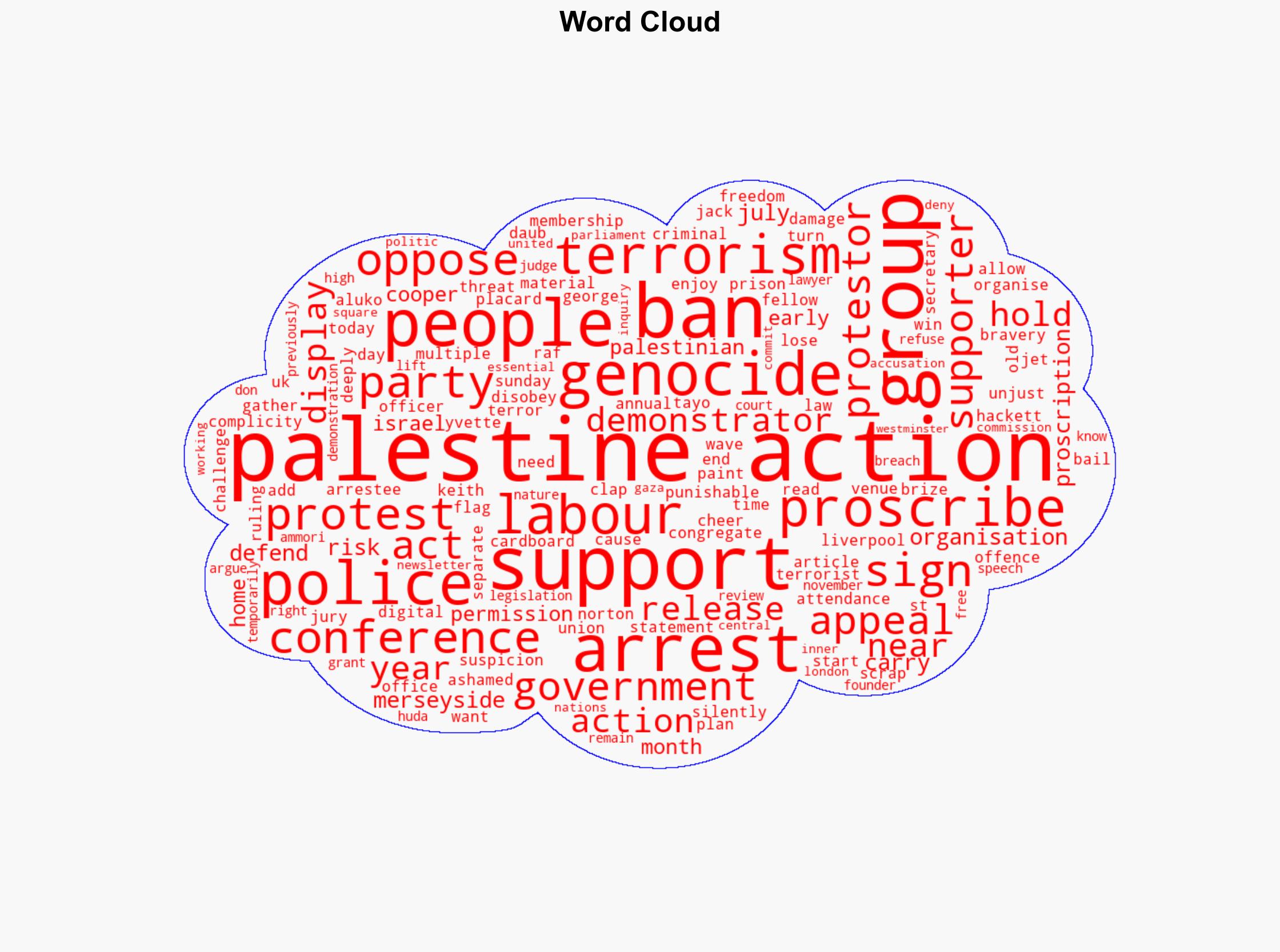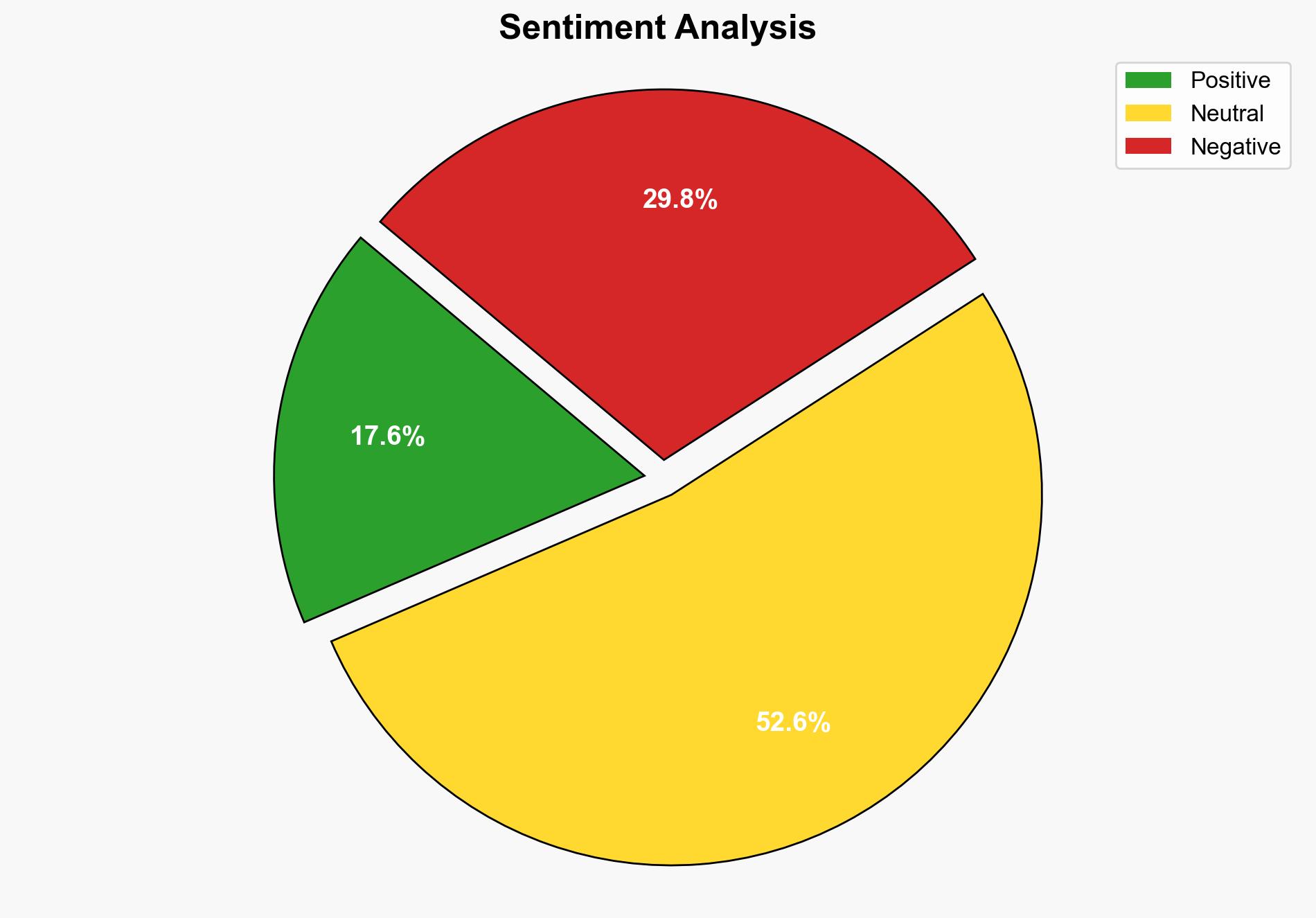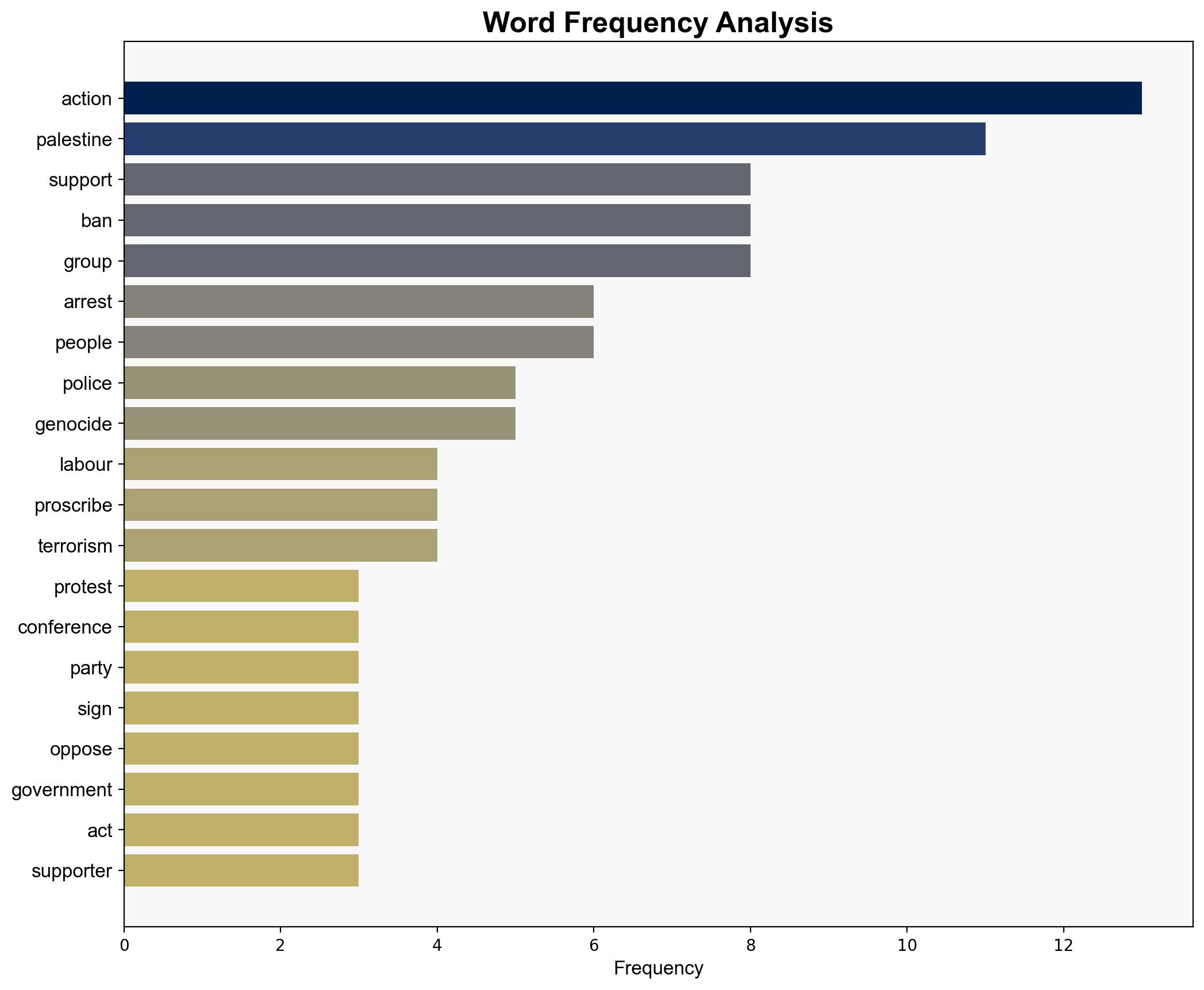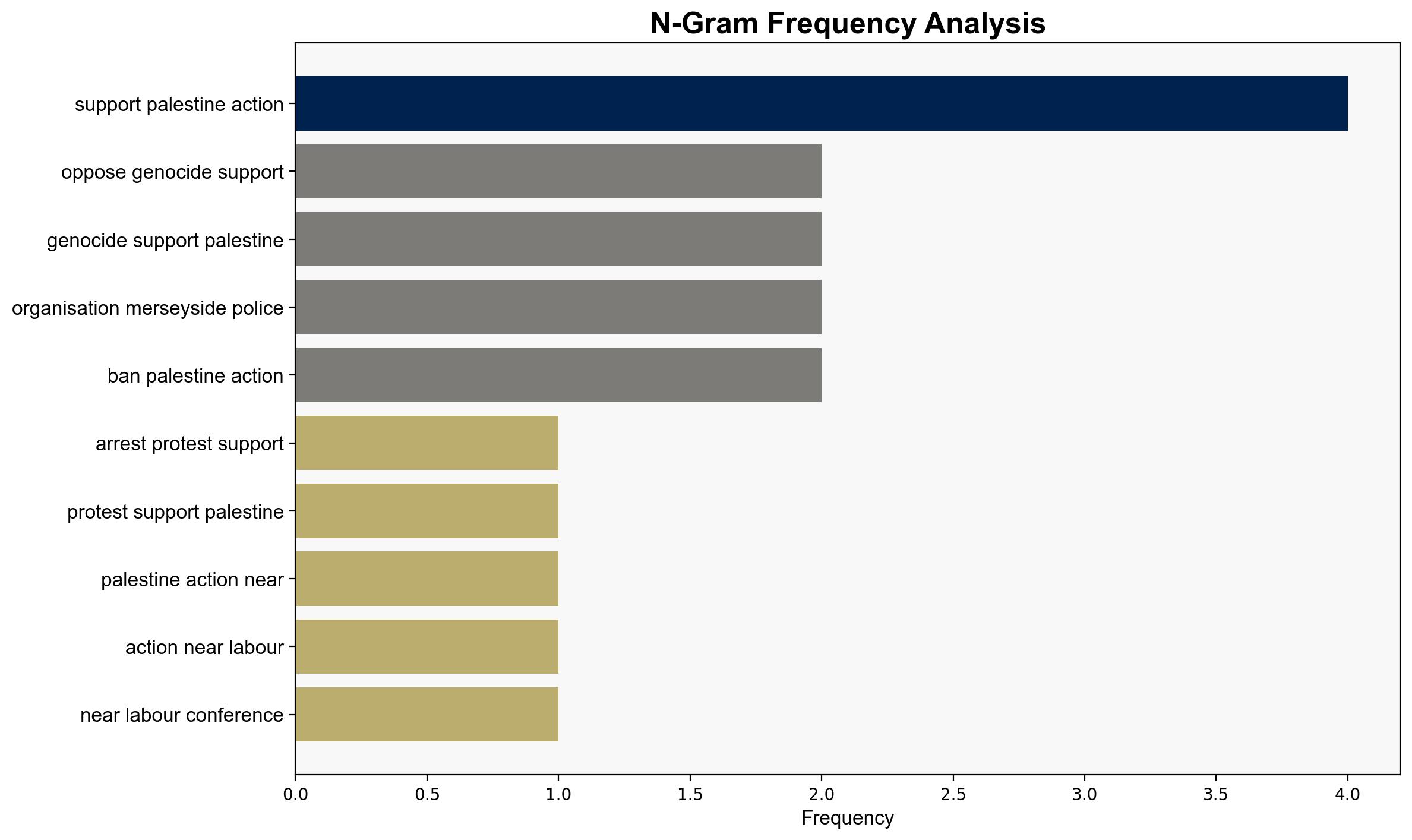Arrests made at Palestine Action protest outside Labour Conference – BBC News
Published on: 2025-09-28
Intelligence Report: Arrests made at Palestine Action protest outside Labour Conference – BBC News
1. BLUF (Bottom Line Up Front)
The most supported hypothesis is that the arrests at the Palestine Action protest are part of a broader governmental strategy to enforce the proscription of the group under terrorism legislation. This action aims to deter similar protests and reinforce the legal framework against organizations deemed as supporting terrorism. Confidence level: Moderate. Recommended action: Monitor legal proceedings and public reactions to assess potential shifts in public sentiment and policy adjustments.
2. Competing Hypotheses
1. **Hypothesis A**: The arrests are primarily a law enforcement measure to uphold the proscription of Palestine Action under terrorism laws, aiming to prevent activities that could be perceived as supporting terrorism.
2. **Hypothesis B**: The arrests are a politically motivated action intended to suppress dissent and manage public perception during the Labour Party Conference, reflecting a broader strategy to control narratives around controversial issues.
Using the Analysis of Competing Hypotheses (ACH) 2.0, Hypothesis A is better supported due to the legal context and the explicit mention of the proscription under terrorism legislation. Hypothesis B, while plausible, lacks direct evidence linking the arrests to political motivations beyond law enforcement.
3. Key Assumptions and Red Flags
– **Assumptions**: It is assumed that the proscription of Palestine Action is based on credible evidence of its activities supporting terrorism. Additionally, it is assumed that the arrests were conducted in accordance with legal standards.
– **Red Flags**: The timing of the arrests during a high-profile political event could indicate potential political motivations. The lack of detailed evidence supporting the proscription raises questions about transparency and due process.
– **Blind Spots**: Limited information on the internal deliberations within the government regarding the proscription decision and its enforcement.
4. Implications and Strategic Risks
The enforcement of the proscription could lead to increased tensions between activists and law enforcement, potentially escalating into more frequent and widespread protests. This situation could strain police resources and impact public safety. Additionally, the perception of political suppression could influence public opinion and affect the Labour Party’s image, especially if perceived as complicit in limiting free speech.
5. Recommendations and Outlook
- Monitor legal proceedings related to the arrests and the appeal against the proscription to gauge potential changes in legal interpretations and public sentiment.
- Engage with community leaders and activists to address grievances and reduce tensions, potentially mitigating the risk of further protests.
- Scenario Projections:
- Best Case: Legal clarity and transparent communication reduce tensions, and protests remain peaceful.
- Worst Case: Escalation of protests leads to violence, damaging public trust and straining law enforcement.
- Most Likely: Continued legal challenges and protests, with moderate public interest and media coverage.
6. Key Individuals and Entities
– **Palestine Action**: The proscribed group at the center of the protests.
– **Huda Ammori**: Founder of Palestine Action, involved in legal appeals against the proscription.
– **Keith Hackett**: Protestor voicing opposition to the proscription.
– **Tayo Aluko**: Protestor advocating for the end of the proscription.
7. Thematic Tags
national security threats, counter-terrorism, regional focus




